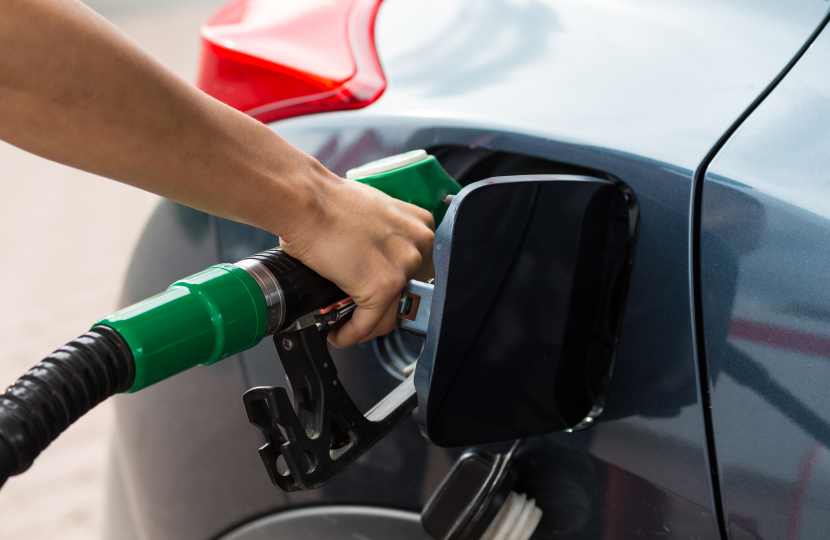
First reported in Conservative Home
Of course, everyone has rightly been going on about the energy bills crisis, but running simultaneously to this has also been a petrol and diesel price crisis. This has just as much of an effect on the economy as does energy bills.
We all remember seeing fuel prices rise to record highs over the summer, with prices at the pumps reaching £2 per litre. This meant that the average family was paying £16 more to fill up their tank compared to a year ago. In rural areas, where prices are traditionally slightly higher, they were having to find an additional £20. Hauliers were forking out £120 more to fill up than in February 2021, and for white-van men and women, it was £25 more. This was simply unaffordable for most people, and now, coupled with the rising prices of energy bills and food, the cost of living is a struggle that the majority of people across the country are concerned about.
Extreme environmentalists like to paint a picture of selfish motorists who just want cheaper prices at the pumps. But the reality is that, for most, this is not the case. These motorists are single mums taking their kids to school, the worker in their van trying to earn an honest crust, an NHS ambulance paramedic rushing seriously ill patients to hospital, police cars on patrol trying to cut crime, fire engines putting out fires, and businesses transporting food and supplies to local supermarkets. Whichever way you look at it, the cost of fuel is directly, and indirectly, affecting us all.
Even if you don’t have a car, van, motorbike, or lorry, and rely on public transport to travel, you will find yourself asking why bus prices are so high. Well the answer is because the cost of diesel has risen by around 50 pence per litre over the past year. In September 2021, diesel cost around £1.30 per litre, but this year, those prices have risen to around £1.80. The same can be said of petrol prices which were around £1.35 per litre last year, rising to £1.67 as of the 13th September.
It must be noted that after a long and ongoing campaign waged by myself and others working alongside Howard Cox of Fairfuel UK, the Government has frozen fuel duty for the past 12 years saving motorists an average £15 everytime they fill up. Moreover, in this year’s Spring Statement, the then-Chancellor Rishi Sunak made a welcome intervention to support people with the cost of living by cutting fuel duty by 5 pence per litre.
However, we know that the majority of these savings have not been passed on to consumers as big oil companies are continuing to make many billions of pounds of profits. According to the RAC Foundation and FairFuel UK’s national panel, average profit margins for diesel have increased by 150 per cent in the last two years, with petrol margins more than doubling.
When the new Chancellor, Kwasi Kwarteng, gets up on Friday to announce the details of the new Government’s spending plans in his fiscal statement, in order to reinforce this Government’s tax-cutting credentials, and leadership campaign promises, surely cutting VAT on fuel, or a further cut in fuel duty, should be a number one priority. This could be done using the extra £2 billion the Government has received in fuel tax revenue as a result of the higher prices over the past few months.
Action taken here will help people across the spectrum. Aside from providing additional support to single parents struggling to afford to take their children to school, it will also help businesses to spend less on transportation costs and therefore enable them to employ more people, and invest in new technologies and machinery to grow their enterprise, and in turn grow the economy. It would enable public services like the NHS and the police and fire services to spend more on frontline services rather than fuel. And it would mean that small and medium sized businesses will pay more tax in terms of their profits which will increase without the worry of high overheads of fuel costs.
I have written before that curbing inflation must be the number one issue His Majesty’s Treasury should tackle as the avenue to economic growth and helping people with the cost of living. The Chancellor could take a leaf out of Germany’s book. They have decreased their fuel duty by 25 pence and have since seen the pace of their inflation dramatically slowed.
The Conservatives have extraordinary credentials when it comes to fuel duty. Before 2010, it was almost certain that fuel duty would increase in every Budget, as sure as the sun rises in the east and sets in the west. If the Government is going to take radical action on other forms of taxation, surely the time has come to be properly radical on fuel duty.
